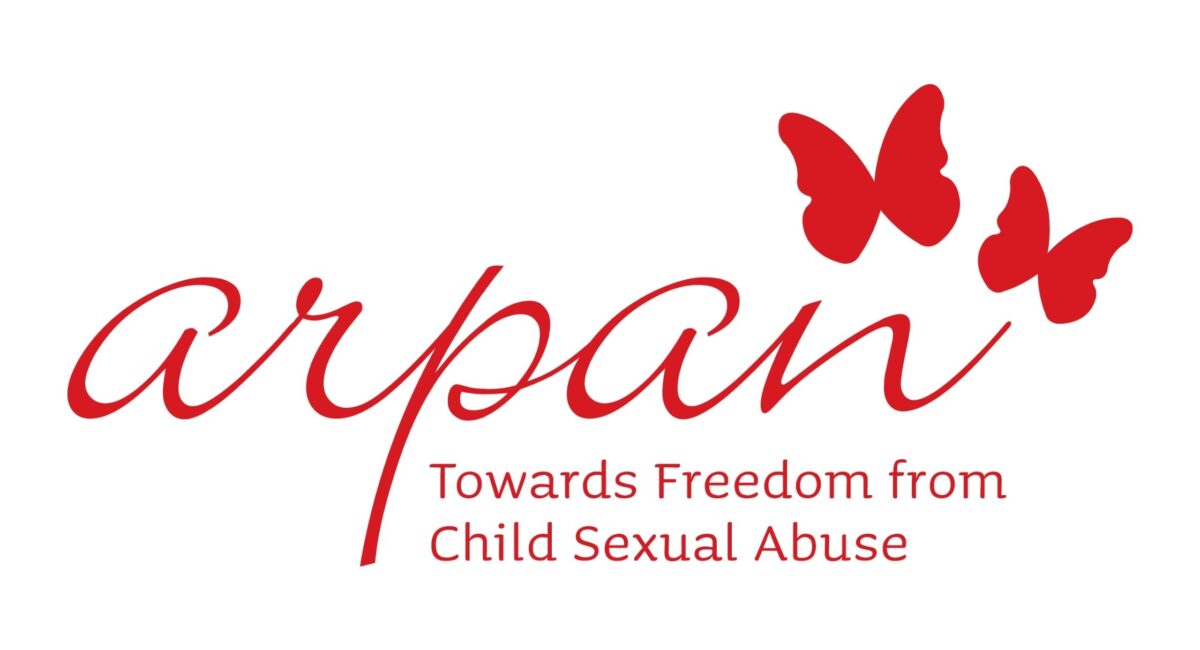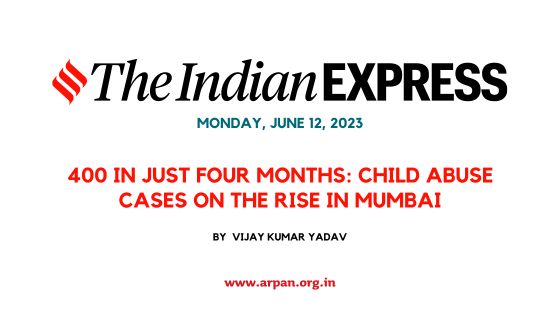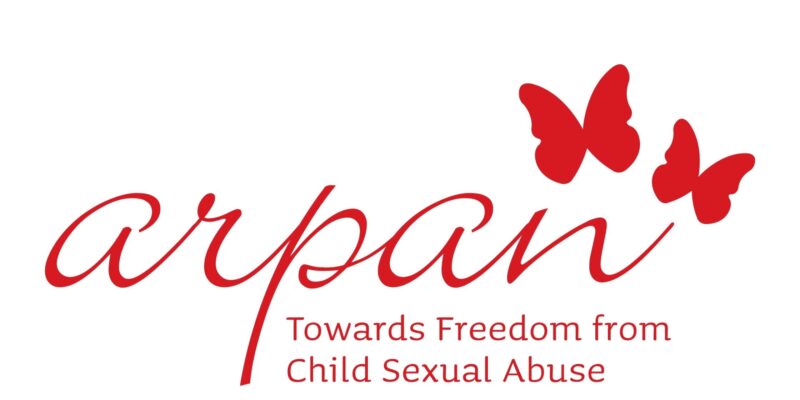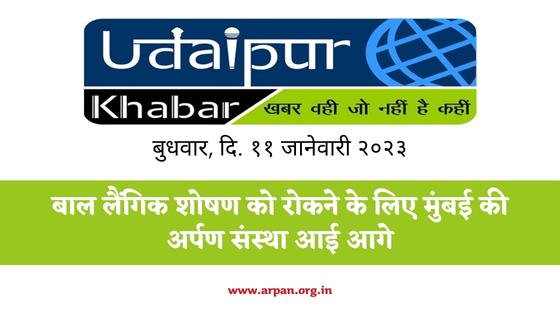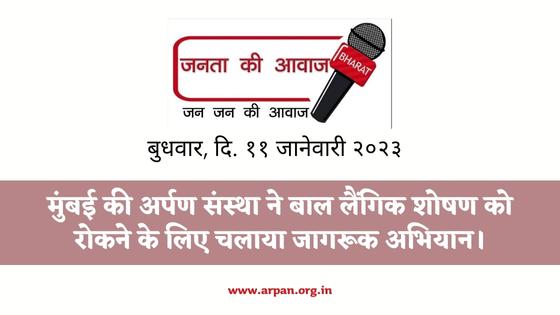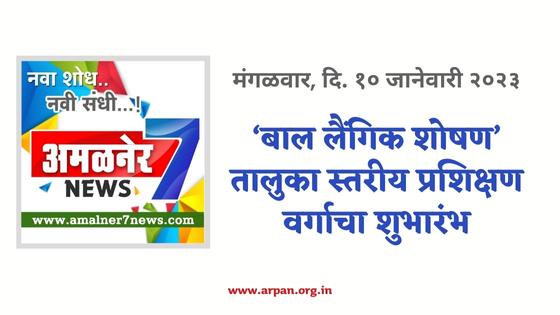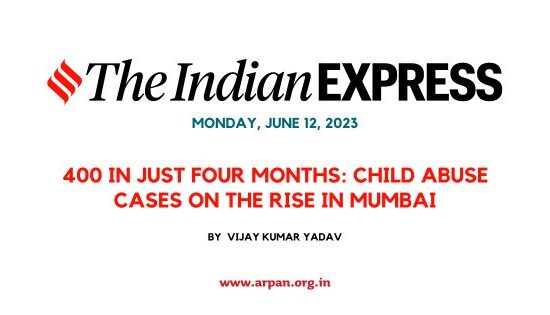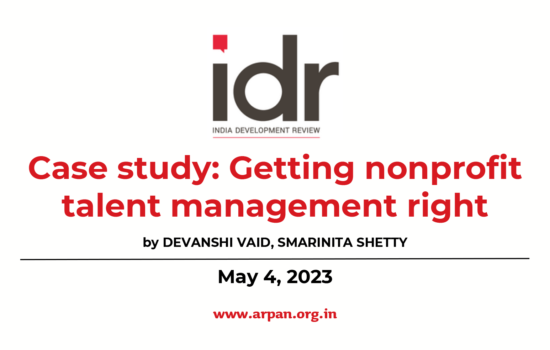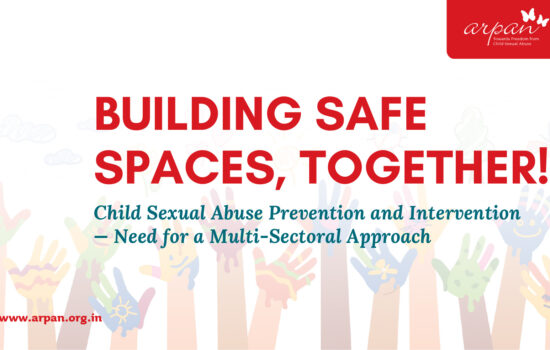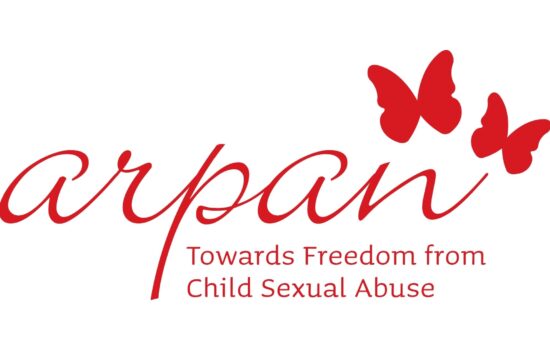Arpan, a leading NGO working on the issue of child sexual abuse (CSA) recently launched a case study titled ‘Integration of Personal Safety Education Programme in Schools’.
The launch of the report was attended by renowned personalities like Dr David Finkelhor – Director of Crimes against Children Research Center, University of New Hampshire, USA, Javier Aguilar (Chief of Child Protection programs, Unicef India) and Rakesh Jhunjhunwala, Founder, RARE Enterprises.
This research report, ‘Integration of Personal Safety Education Programme (PSEP) in Schools: A Case Study’ is an evaluation of the impact of integrating the Personal Safety Education Programme in the Bombay Cambridge Gurukul (BCG) group of Schools. The evaluation was conducted in the five schools of BCG. Focus Group Discussions (FGDs) were conducted with 152 children from 5 schools from 5th, 6th and 7th standards. Among these 152 children, individual interviews were conducted with 31 children. Five headmistress and principals, 10 teachers (who conduct Personal Safety Education programme), 5 counsellors, 9 parents, CEO and Head of Dept – HRD (Human Resource Development) were interviewed.
The key findings of the study were:
Children demonstrated increasing help-seeking behaviour as they identified unsafe situations, used refusal skills, and reported it to a trusted adult almost immediately. All 9 children (out of 31 children with whom the individual interview was conducted) who disclosed about past unsafe experiences in the study sought help from their trusted adults and were able to evolve a plan of action to ‘Get Away’ from the situation. In the Focused Group Discussions conducted with 152 children, all children were able to bring out an immediate response, an intermediary resolution and a long-term solution for unsafe situations that the protagonist faced in the assessment trope that was used to elicit responses. Children’s narratives of using refusal skills and accessing help are also substantiated by parents, teachers and counsellor’s accounts. The Management of schools of BCG developed a Child Protection Policy with a focus on responding to CSA. The child protection policy was child-friendly and responsive and showcases their knowledge on the issue of CSA. Children, across all groups, were comfortable about their body, knew that their body belonged to them and believed themselves to be active participants in ensuring their safety. They were comfortable with naming Private Body Parts and remembered the Personal Safety Rules/Guidelines. Children recognized that Personal Safety Education (PSE) inculcates them with skills to face ‘life’ as “PSE is about life”. Children shared their learning’s with their siblings, cousins or friends or by leaving messages for other children through this evaluation.
Parents recognized PSEP as age-appropriate, necessary and adequate. They were comfortable with the content and delivery of the programme. Parents identified the PSEP in aiding their communication with children on personal safety. Teachers were well aware of signs and symptoms of CSA and were proactive in responding to a child’s disclosure.
Teachers recognised PSEP as a systematic age-appropriate model with adequate teachings aids and activities. It helped teachers to initiate dialogue on this issue in a non-threatening manner. It also helped to streamline the process of handling disclosures of CSA. Teachers had taken the learnings from the PSE classrooms and had created safe environments in their homes and personal spaces. Pooja Taparia, Founder and Chief Executive of Arpan said, “Arpan has been a pioneer in evolving and conducting a holistic prevention and intervention school-based model, the PSEP. Over time we have seen that when schools take up the PSEP and invest in it, it doesn’t just empower children with the necessary knowledge skills and attitude to prevent instances of Child Sexual Abuse but also empowers their caregivers like teachers and parents in supporting the child in case of any abuse.”
Source : DNA

